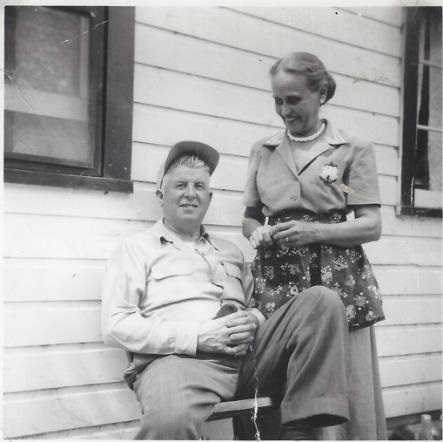Siberia - Clyde Earl Reynolds
The correspondence, content, photos, and newspaper clippings below were provided to the Society by Clyde Reynolds' grandson, Craig Lindberg.
Clyde Earl Reynolds entered the Army and was assigned to the 27th Infantry regiment in Ft. Jefferson, Missouri. He was sent to Angel Island in San Francisco Bay, the Hawaiian Islands, the Philippines, to Japan, and finally to Vladivostok, Siberia. The duty of the 27th was to guard the Transcontinental Railroad from Moscow to Vladivostok, along with units from other Allied Countries. They went off through Manchuria, Harbin, China, and on to Siberia. Their unit was sent to Irkutsk, Siberia, on Lake Baikal.
The Bolsheviks had been running armored trains along the railroad and causing trouble, so the 27th were to prevent any trouble in Irkutsk. This was in the middle of Siberia, one of the coldest regions of the world. Clyde was a Corporal in a machine gun unit, and was also in charge of "hunting patrol" -- in other words, he had a group that went deer hunting to help provide food for their unit. Winter temperatures were often 40 to 60 below zero.
Their unit never saw any big skirmishes, but the trains just kept on as they challenged them. Eventually the Bolsheviks gave up, but the 27th remained, not returning stateside until months after Armistice was declared on November 11th, 1918.
The 27th, now known as The Siberian Wolfhounds, a name given them by the Bolsheviks who likened the regiment's advances to the fleet, fearless dog of Siberia, reversed their trek back, but remained in the Hawaiian Islands. Clyde returned home in December 1919 and was honorably discharged from the service.
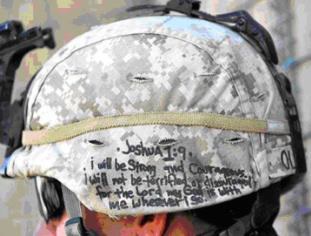 Craig Lindberg wrote the following letter about Clyde for his son Eric (Clyde's great-grandson). Eric is a 2LT, Airborne Ranger with 1st Cavalry, Ft. Hood, TX. Craig reports that "For the record [Eric] went straight through Rangers (no recycle) in the worst winter the Mountain and Swamp phase Ranger Instructors will attest. Wolfhound blood runs deep."
Craig Lindberg wrote the following letter about Clyde for his son Eric (Clyde's great-grandson). Eric is a 2LT, Airborne Ranger with 1st Cavalry, Ft. Hood, TX. Craig reports that "For the record [Eric] went straight through Rangers (no recycle) in the worst winter the Mountain and Swamp phase Ranger Instructors will attest. Wolfhound blood runs deep."
I will be strong and courageous. I will not be terrified or discouraged for the Lord my God is with me wherever I go.
Joshua 1:9
December 5, 2017
Dear Eric,
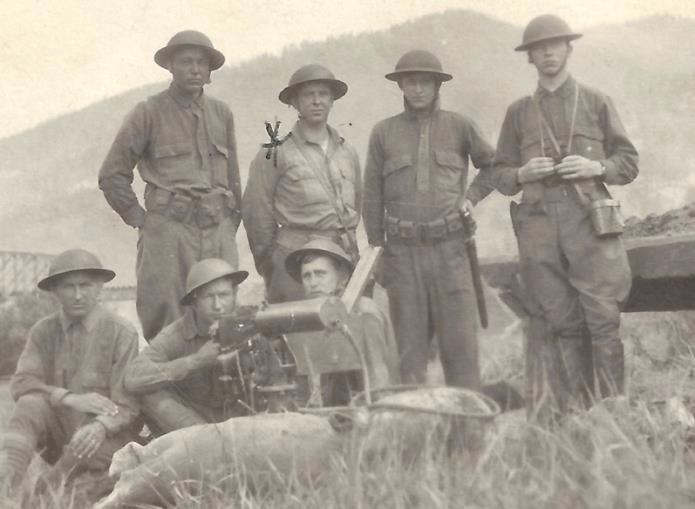
By the time you're reading this you will likely have finished Mountain and be preparing for HBL where you may possibly take one of the longest hot, soaking baths ever followed by one of the longest sleeps ever.
While I've mentioned your Great Grandfather Clyde Earl Reynolds (aka Gubbie to Kerry and me) I thought you’d appreciate a little about his Army experience during WWI, when it was called the AEF (American Expeditionary Forces). In 1918 he was a 20 year old corporal in a machine gun unit, Co. M, 27th Infantry, stationed in the Philippines before the Regiment’s assignment to the Russia Expedition to fight in the Russian Civil War along w allied troops from Japan, Britain, Canada, France and Italy. Their task to protect the Siberian railroad in support of the White Russians and against the Red Russians led by Lenin and his Communist Party aka Bolsheviks.
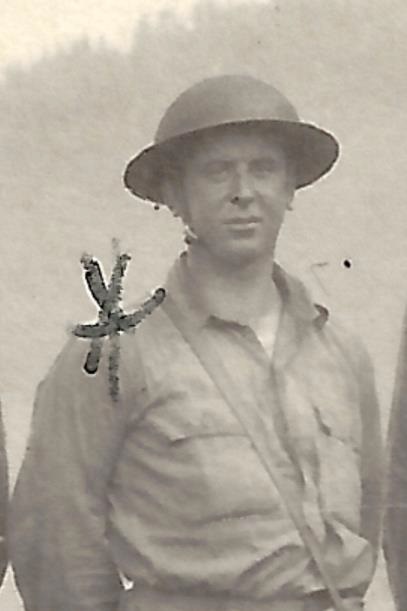
This handsome, young man had likely never left Minnesota and here he was on a long journey that took him to Hawaii, the Philippines, the port of Vladivostok and then a year in the remotes of Siberia. BTW this photo is on a postcard, a popular way to save photos as mementos to mail back home to family and friends.
In Russia their supply lines were thin and stretched which meant improvising. Your Great Grandfather, being an excellent shot and hunter was assigned to lead a group responsible for taking local game to supplement the food supply. The main deer species in Siberia is the musk deer and the bucks are noted for their tusks in lieu of antlers. Siberia also has the largest species of tiger. I wonder if that ever became an issue.
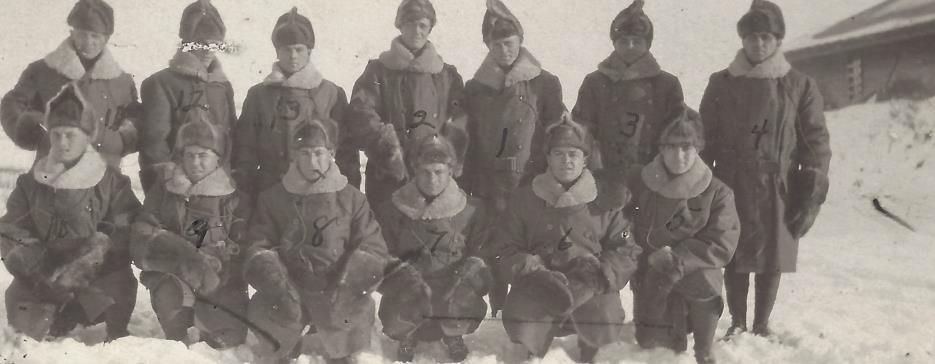
Here's his platoon sometime in 1918-1919. Can you imagine the effort needed to survive much less effectively put forth a military presence using clothing and gear of the early 1900’s? In Siberia the annual avg temp is 23F and in January the avg temp is minus 13F. But it gets colder than that. How would you even shoot a rifle when exposed skin could freeze in minutes?
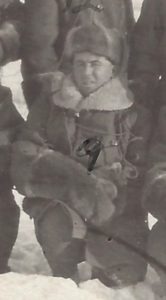 Still, they served with distinction and during this time earned the 27th a nickname that follows them to this day, "The Wolfhounds".
Still, they served with distinction and during this time earned the 27th a nickname that follows them to this day, "The Wolfhounds".
The Bolshevik forces likened the regiment's advances to the wolfhound, a fleet, fearless dog native to Siberia. The Department of the Army officially recognized the nickname and authorized its use. Their motto, "NEC ASPERA TERRENT," translates to "FEAR NO DIFFICULTIES," but is commonly known as "NO FEAR ON EARTH".
Nine months after the Armistice was signed ending WWI (11 Nov 1918), your great grandfather with the 27th made the journey back to the States and his honorable discharge in December 1919.
He never spoke of this experience to me. All of this I gathered from our late Uncle Bob and my folks. To me he was this kind, hard working, outdoorsman who rowed his duck boat with your Aunt Kerry and I as kids around a remote, lily pad-dotted lake in northern MN so we could catch some beautiful trout to take back to our campsite for dinner.
Today, your Service and sacrifice is doing honor to our country, family as well as yourself. Thought you should know more about your forbearers with whom you now share this esteemed distinction.
Love,
Dad
